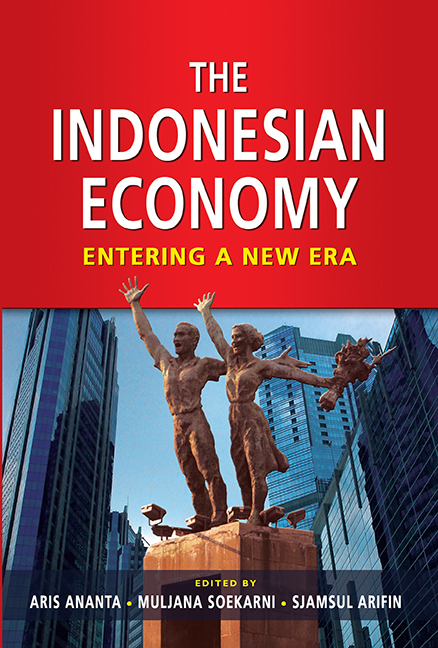Book contents
- Frontmatter
- Contents
- List of Tables
- List of Figures
- Message from the Deputy Governor of Bank Indonesia
- Message from the Director of the Institute of Southeast Asian Studies
- Foreword
- Preface
- Contributors
- PART I INTRODUCTION
- 1 Economic Challenges in a New Era
- 2 Government Economic Policies since the Beginning of the New Order Era
- PART II MONETARY AND FISCAL POLICIES
- PART III DOMESTIC ECONOMY
- PART IV SEARCH FOR NEW PARADIGMS
- Index
1 - Economic Challenges in a New Era
from PART I - INTRODUCTION
Published online by Cambridge University Press: 21 October 2015
- Frontmatter
- Contents
- List of Tables
- List of Figures
- Message from the Deputy Governor of Bank Indonesia
- Message from the Director of the Institute of Southeast Asian Studies
- Foreword
- Preface
- Contributors
- PART I INTRODUCTION
- 1 Economic Challenges in a New Era
- 2 Government Economic Policies since the Beginning of the New Order Era
- PART II MONETARY AND FISCAL POLICIES
- PART III DOMESTIC ECONOMY
- PART IV SEARCH FOR NEW PARADIGMS
- Index
Summary
Indonesia today is a different Indonesia compared with when it first proclaimed its independence in 1945, when it started a new economic paradigm in 1966, and even when it began its democratic reforms in 1998. Today, Indonesia exists in a vastly different social, economic, and political environment.
Indonesia and the rest of the world have entered a new era of economic and other challenges. The new era in both the global and local contexts necessitates different approaches as economic policies are not made in a social and political vacuum. This book on the Indonesian economy has been prepared with this new era in mind. It aims to examine what has been happening in the current Indonesia in the new era. It focuses on the events during the reform period while also discussing the events since the beginning of the New Order. It presents as well some policy recommendations for the current Government of Indonesia in the context of a search for a new world development paradigm.
The book is expected to be very useful to both beginners and experts on the Indonesian economy. However, the book does not cover all the economic issues Indonesia faces in the new era. It focuses on three macro issues examined in three parts, in addition to the introduction. Part I starts with this chapter which introduces the book and provides a brief history of the Indonesian economy since the beginning of the New Order (1966–98). Part II, consisting of four chapters, covers the monetary and fiscal issues that are the core tools in macroeconomic policies that have been important sources of boom and bust in the economies. Recognizing the importance of Indonesia's large population with its rising income and aspiration, Part III, comprising three chapters, examines the domestic market. This focus on the domestic market is a recognition that Indonesia should be less dependent on export promotion and financial liberalization. Had Indonesia been very successful in its drive for export promotion and financial liberalization, the impact of the 2008–09 global crisis on the Indonesian economy would have been much greater. Part III indicates the need for a change of the development paradigm in Indonesia's economic development by providing more weight to the domestic economy.
The search for new development paradigms has also been going on all over the world.
- Type
- Chapter
- Information
- The Indonesian EconomyEntering a New Era, pp. 3 - 27Publisher: ISEAS–Yusof Ishak InstitutePrint publication year: 2011



